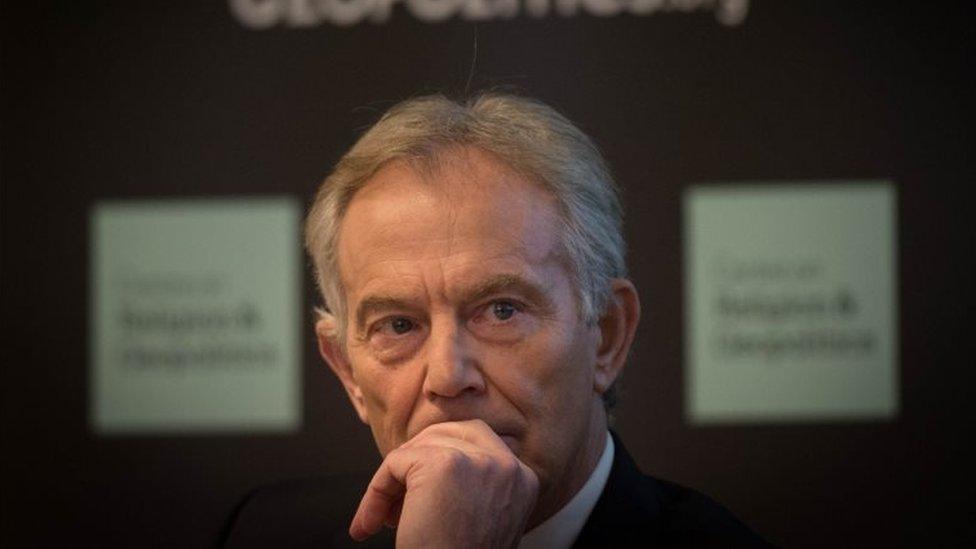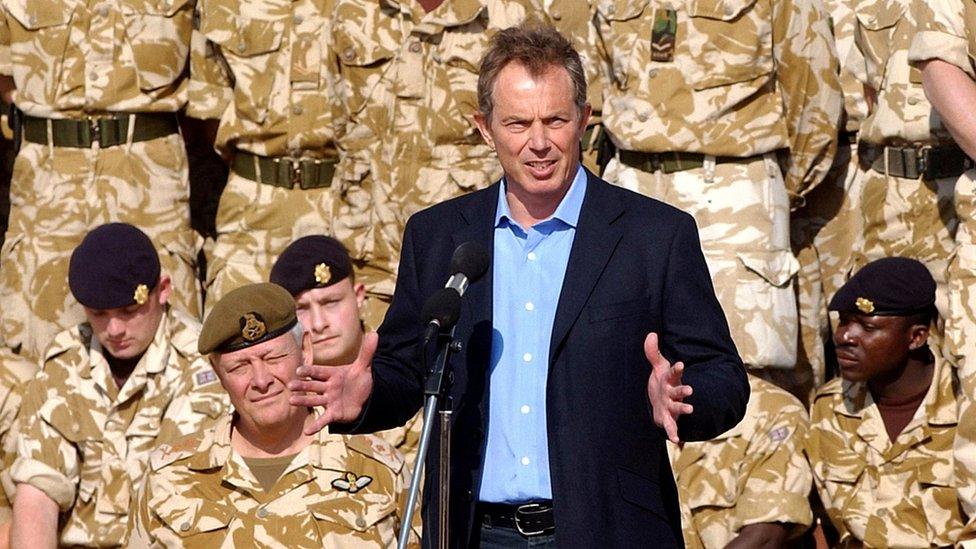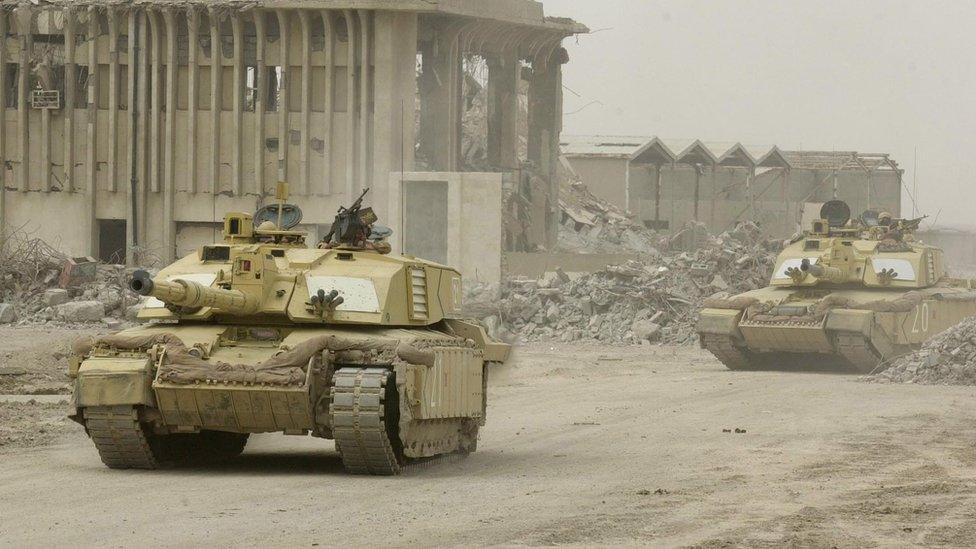Tony Blair: Ground war needed to defeat IS militants
- Published

Tony Blair has called for a "proper ground war" against so-called Islamic State in Iraq and Syria.
The former British prime minister said it was not possible to defeat the group through air strikes alone.
He also admitted that the West had "underestimated" the problems in Iraq after the toppling of Saddam Hussein.
He refused to answer questions on the Chilcot report into the Iraq war - to be published next month - at the Centre on Religion and Geopolitics event.
But BBC Political Correspondent Iain Watson said he gave a strong steer on his likely response to any criticisms he is likely for face from Chilcot.
Mr Blair said: "We underestimated profoundly the forces that were at work in the region and that would take advantage of the change once you topple the regime.
"That's the lesson. The lesson is not actually complicated, the lesson is simple - it's that.
"It's that when you remove a dictator, out come these forces of destabilisation - whether al-Qeada on the Sunni side or Iran and its militia on the other side."

Analysis by Iain Watson, BBC political correspondent

Former Prime Minister Tony Blair appeared before the Inquiry twice
Tony Blair didn't utter the C word - he won't comment on the Chilcot inquiry into the Iraq war until the report is published on 6 July.
But at an event in central London organised by the Centre on Religion and Geopolitics - a think tank which he helped to set up - he made it clear he would be unapologetic for his role in taking Britain to war in 2003.

Turning to the threat posed by IS - also known as Isis and Daesh - he said it had to be tackled before it could make further inroads in Libya.
He said "proper ground war" was needed to defeat the group, which could include British troops in a support role.
"There is no way of defeating these people without defeating them on the ground. Air strikes are not going to defeat Isis, they have got to be tackled on the ground," he said at the event in Westminster.
That did not necessarily mean British troops doing the fighting, argued Mr Blair, who suggested "our forces could be in support".
Iraq war legacy
But to defeat IS militants "you are going to have to go and wage a proper ground war against them", he added.
He told the event the choice was not between a full-scale ground invasion force, which could govern the land after the fighting, and not making any intervention at all, arguing that smaller-scale deployments by the US were already making a difference.
"You have got to defeat these people on the ground. The armed forces of America, the UK, France, other major countries have both experience and capability so even if we are using them in support of local forces, you have just got to decide what our objective is.
"Is our objective to defeat this enemy? My answer to that is yes."
Asked whether the legacy of the Iraq war meant it was more difficult for a UK leader to deploy troops overseas, Mr Blair said: "You can describe it as a legacy or describe it as a fact that arises from the nature of the conflict."
He added: "We are not being honest with out public if we are saying it is possible to defeat these people without making the commitment to defeat them and to do what it takes to defeat them.
"In my view, defeating them is absolutely fundamental because if we don't defeat them they are going to come and attack us here. This is not someone else's fight, it is our fight as well."
- Published9 May 2016
